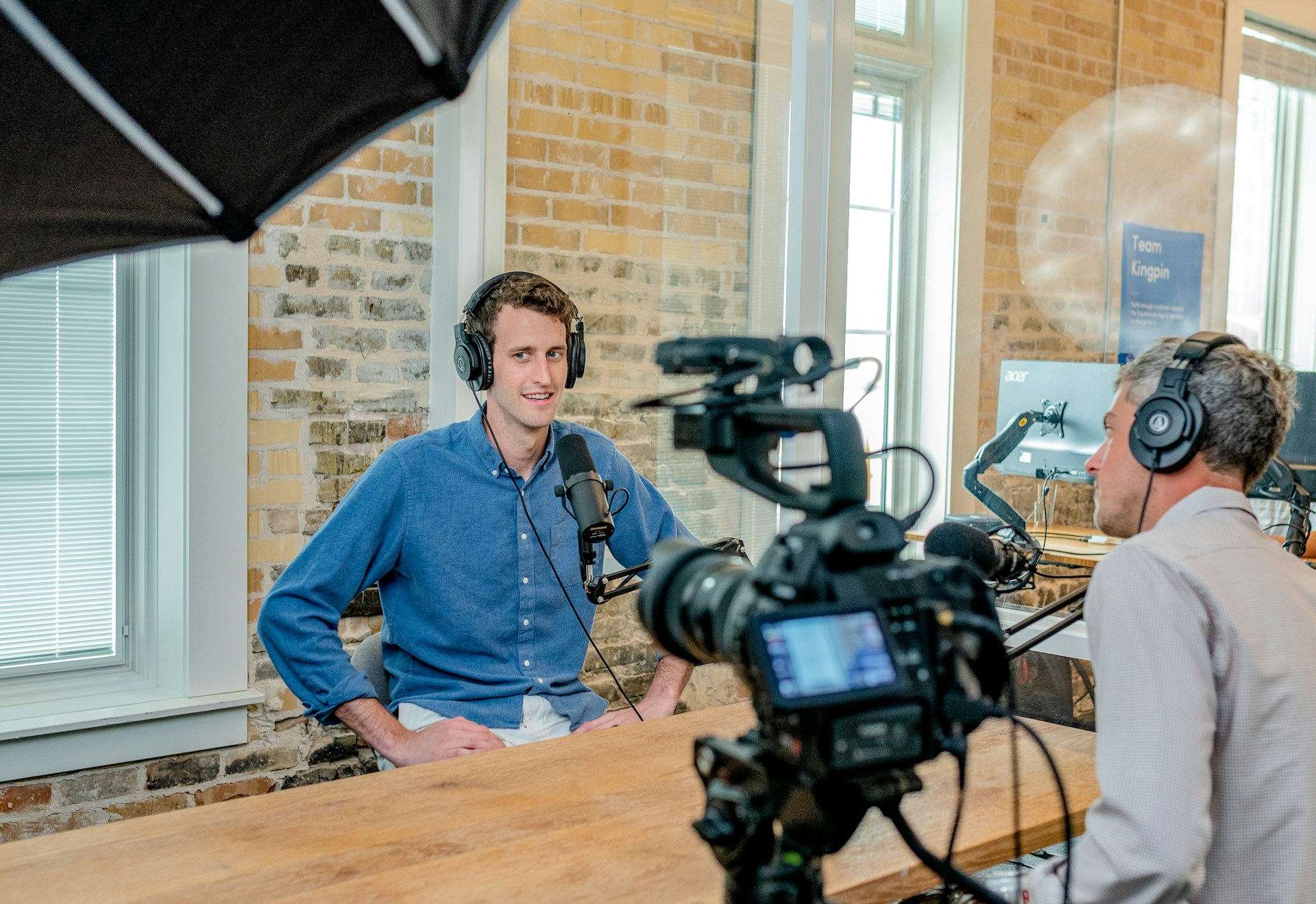Spokesperson at the ready: Be prepared, clear, authentic and stick to your narrative.
Whether you’re a public figure, or a spokesperson for your organisation, being able to master the art of handling a media interview is an essential skill to have. It requires preparation, foresight and sometimes nerves of steel. Many spokespeople have been caught off guard by distractions during their live broadcast, or an unexpected question.
Communicating under the pressure of a camera lens, requires the spokesperson to keep their cool and develop the art of navigating challenging questions. Crucially, it requires them to stay ‘on message’ and not get distracted by an adjacent conversation if they want to build brand equity.
In this blog, we will delve deeper into the top 10 media training tips that will help you ace your next interview.
Preparing to be in the spotlight
1. Deliver three key messages:
Before any interview, take the time to identify the three key messages you want to convey. That’s the most anyone can remember! These messages should be simple, easy to remember, and align with your overall communication strategy. According to PR expert Brad Phillips, “Think of your key messages like a compass. They will help you stay on course during the interview.”
2. Stick to your topic:
It is easy to get side-tracked during an interview, but staying on topic is crucial. If the interviewer asks a question that is not relevant to your key messages, utilise bridging techniques to take you back to your main points. The key is to remain focused and avoid tangents that could confuse or distract the audience.
3. Be clear and concise:
People have short attention spans. When speaking to the media, it’s important to keep your responses clear and concise. Avoid using jargon or technical terms that the audience may not understand. According to a study by Nielsen Norman Group, “The average person reads at a speed of about 200 to 300 words per minute, so keeping your message short and to the point is crucial.”
4. Practice makes perfect:
Practice is key to any successful media interview. Take the time to practice your responses to potential questions ahead of time. This will help you feel more confident and prepared during the actual interview. The more you practice, the more comfortable you’ll become, and the better equipped you’ll be to handle unexpected questions.
5. Be authentic, be real:
One of the most important things to remember during an interview is to be yourself. Authenticity is key to building trust with the audience. According to Edelman’s trust barometer,” 76% of respondents said they prioritise authenticity when deciding which brands to support.” The more genuine and honest you are, the more likely people are to trust and believe in your message.
6. Reference case studies:
Using real-life examples to illustrate your key messages can help make your points more relatable and memorable. For example, if you’re promoting a new product, share a story about how it has positively impacted a customer’s business This will help bring your message to life and make it more tangible for your audience.
7. Don’t use negative language:
Negativity has no place in a media interview. Avoid using negative language or speaking negatively about your competitors. Instead, focus on your own strengths and what sets you apart. By staying positive and upbeat, you’ll come across as more confident and likable.
8. Watch your body language:
Your body language can convey as much information as your words. Be aware of your posture, eye contact, and facial expressions. People don’t just listen to what you say, they look at how you say it. Only a small percentage of communication is based on the actual words we say. The rest is based on nonverbal cues like body language. Therefore, it’s crucial to make a good impression with your posture and gesturing.
9. Be ready for difficult questions:
Anticipating difficult questions and having a plan for how to respond is crucial for any successful media interview. As the saying goes, “Failing to prepare is preparing to fail.” Stay calm and composed and try to turn difficult questions into opportunities to convey your key messages. The key is to stay on message while also being transparent and honest.
10. Follow up, or ensure your agency does:
After the interview, follow up with the interviewer to thank them for the opportunity and clarify any points that may have been misunderstood. This is also an excellent opportunity to reinforce your key messages and build a relationship with the journalist. By following up, you show that you are invested in the conversation and the relationship.
High profile media interviews don’t come along every day. And, if you are taking your first turn at a broadcast interview, it is your opportunity to shine. But it doesn’t come without risk. Remember there is a team around you that has your back. Ask for the briefing book, ask for the media training, ask for coaching. Don’t be afraid, to say you are nervous! And, take the time to celebrate the success, once it’s all over.
Be clear, be concise: and don’t forget to smile!
Share






